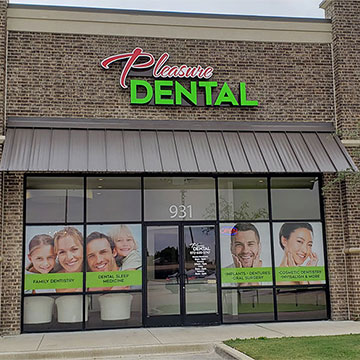What Exactly to Expect From the Dental Implant Healing Process
Dental implants are a trusted solution for restoring smiles and improving oral health. Following a dental implant procedure, the healing process is crucial for success and involves recovering soft and hard tissues. Understanding what happens during each healing phase can help patients prepare and ensure the best possible outcome.
Key Phases of the Dental Implant Healing Process
The recovery period is divided into several stages, each focusing on a different aspect of healing and integration.
- Soft Tissue Healing
After the procedure, the gum tissue around the implant begins healing almost immediately:
- Epithelial tissue typically heals within 7–14 days.
- Complete maturation of the soft tissue barrier takes about 6–8 weeks.
- The peri-implant soft tissue forms a protective barrier, resembling scar tissue around the implant.
Following the dentist’s aftercare instructions is essential during this stage to avoid infection and promote healing. Patients seeking a dentist in Royse City benefit from expert guidance tailored to their recovery needs.
- Bone Healing and Osseointegration
Osteointegration, the process by which the implant fused with the jawbone, is the cornerstone of a successful implant.
- Osteogenic cells differentiate into osteoblasts, forming new bone around the implant.
- This woven bone gradually matures into stronger lamellar bone over 1–3 months.
- A 3–8 months load-free period is required to let the implant integrate fully with the bone.
This phase is critical, as proper integration ensures the stability and longevity of the implant. Understanding this timeline helps set up realistic expectations for those seeking dental implants near you.
- Bone Remodeling
Once the initial healing is complete, the surrounding bone continues to adapt:
- Bone density and structure adjust to support the implant.
- Factors like implant micromotion and overall health play a role in this stage.
- Proper care during this phase ensures the implant remains stable and functional.
A skilled dentist near you can monitor progress during follow-up visits to ensure successful bone remodeling.
Managing Pain and Discomfort
Discomfort during the healing process is normal, but it’s manageable with the right approach:
- Swelling and Pain: Swelling is common for a few days after surgery. Using cold compresses and over-the-counter pain relievers can help.
- Dietary Adjustments: Stick to soft foods that are easy to chew, avoiding hard or sticky items that might disturb the implant.
- Rest: Allow the body adequate time to recover by avoiding strenuous activities for the first few days.
Regular communication with a dentist in Royse City ensures that any unusual symptoms are addressed promptly.
Nutritional Support for Healing
To aid in the healing process, the body requires the right kind of nutrition:
- Vitamin C: Promotes collagen formation and aids in soft tissue recovery.
- Protein: Essential for tissue repair and maintaining overall health.
- Hydration: Drinking a great amount of water helps flush toxins and supports cellular function.
Following a balanced diet enhances recovery and reduces the risk of complications.
Tips for a Smooth Healing Process
To encourage the best possible healing and guarantee the success of your dental implants:
- Maintain excellent oral hygiene by brushing gently around the implant site.
- Avoid smoking as it can make the healing process more difficult and increase the risk of implant failure.
- Keep track of progress and resolve issues by attending all follow-up appointments.
Patients opting for the best dental implants receive personalized care and guidance to support a smooth recovery journey.
The Role of Follow-Up Care
Regular visits to the dentist during the healing process are essential. These appointments allow the dental team to:
- Monitor soft tissue recovery and bone integration.
- Address any discomfort or complications early.
- Ensure the implant is on track for long-term success.
At Pleasure Dental, we focus on delivering comprehensive care to ensure the success of every patient’s implant journey.
The Long-Term Benefits of Dental Implants
While the healing process requires patience, the benefits of dental implants are well worth the effort:
- Durability: With the right maintenance, implants are meant to last a lifetime.
- Functionality: Restores chewing ability and prevents bone loss.
- Aesthetic Appeal: Provides a natural look and feel, enhancing confidence.
For those considering dental implants near you, understanding these benefits highlights why this treatment is an excellent investment in oral health.
Common Questions About the Healing Process
The complete healing process, including osseointegration and soft tissue recovery, typically takes 3–8 months, depending on individual factors.
Is Pain During Healing Normal?
Some discomfort is expected but manageable with prescribed medication and proper care.
While rare, factors like poor oral hygiene or smoking can increase the risk of failure. Regular check-ups with a dentist near you help mitigate these risks.
Preparing for Your Dental Implant Journey
Being informed about the healing process helps patients feel confident and prepared for their dental implant procedure. Maintaining a healthy lifestyle, adhering to aftercare recommendations, and attending follow-up visits can ensure the best possible outcome.
Pleasure Dental guides patients through every step of their implant journey, from consultation to full recovery. Trust the team to provide the expertise and support needed to restore your smile confidently.

About Dr. Femi Adenuga, DDS
With more than three decades of clinical experience, Dr. Femi Adenuga is trusted by families across the Houston area for his warm approach and dedication to high-quality dental care. Trained at the University of Benin and New York University College of Dentistry, he brings together advanced education and genuine compassion to help patients feel comfortable, informed, and confident in their smiles.
Driven by a deep passion for implant and restorative dentistry, Dr. Adenuga pairs years of hands-on expertise with continuous professional growth. His active membership in the International Congress of Oral Implantology reflects his commitment to staying current with the latest techniques and technologies—allowing him to provide care that is modern, reliable, and thoughtfully tailored to each patient’s needs.

